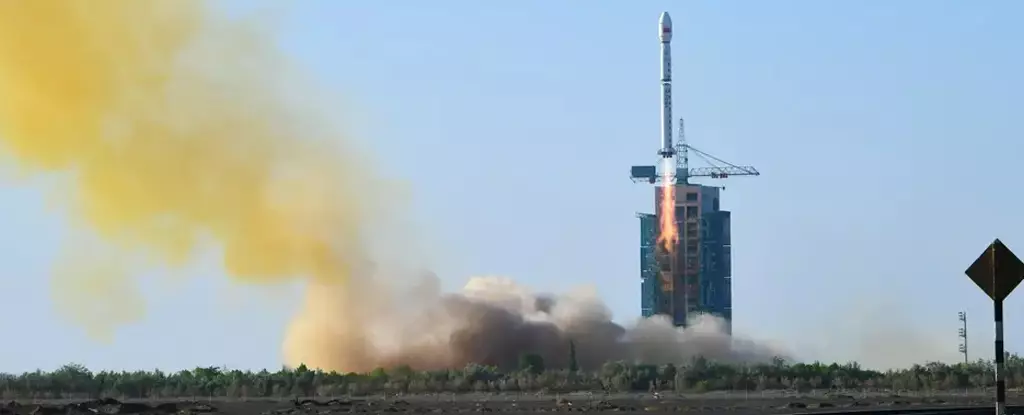The recent accidental launch of China’s Tianlong-3 rocket by a Chinese space firm has raised concerns and criticisms within the global space industry. The incident, which occurred during a test phase, resulted in the rocket lifting off and crashing into a nearby mountainside. This article aims to critically analyze the events leading up to the accidental launch and its implications for China’s space industry.
The statement released by Beijing-based Tianbing Aerospace Technology revealed that a “structural failure” during the first-stage test of the rocket’s power system caused the Tianlong-3 to separate from its launchpad. This failure led to the dramatic sight of the rocket roaring into the sky before crashing into the ground in a fireball explosion. Fortunately, there were no reported injuries, and the explosion caused a local fire away from residential areas.
The Tianlong-3 rocket was designed to deliver satellites to orbit and was described by Tianbing as “comparable to SpaceX’s Falcon 9.” The rocket, with a takeoff mass of 590 tons, is designed for reflight and is estimated to be partially reusable for up to 10 trips. This comparison to SpaceX’s Falcon 9 highlights China’s aspirations to compete in the global space industry.
The accidental launch of the Tianlong-3 comes at a time when China’s private space industry is gaining prominence. The opening of China’s space industry to private firms in 2014 has sparked investment in aerospace technology, including reusable rockets. The development of reusable rockets has been championed by SpaceX as a key step towards advancing humanity’s presence in space.
Chinese people reacting online to the accidental launch drew comparisons to the initial problems faced by SpaceX with its Falcon rockets. The incident also occurred shortly after Chinese leader Xi Jinping urged the country’s science sector to innovate and compete with the West’s tech development scene. This highlights the increasing competition in the global space industry and China’s ambitions to establish itself as a leader.
The accidental launch of the Tianlong-3 rocket by Tianbing Aerospace Technology serves as a reminder of the challenges and risks involved in space exploration. This incident underscores the importance of rigorous testing and quality control measures in the development of space technology. As China’s space industry continues to grow and compete on the global stage, lessons must be learned from such events to ensure the safe and successful advancement of space exploration endeavors.


Leave a Reply